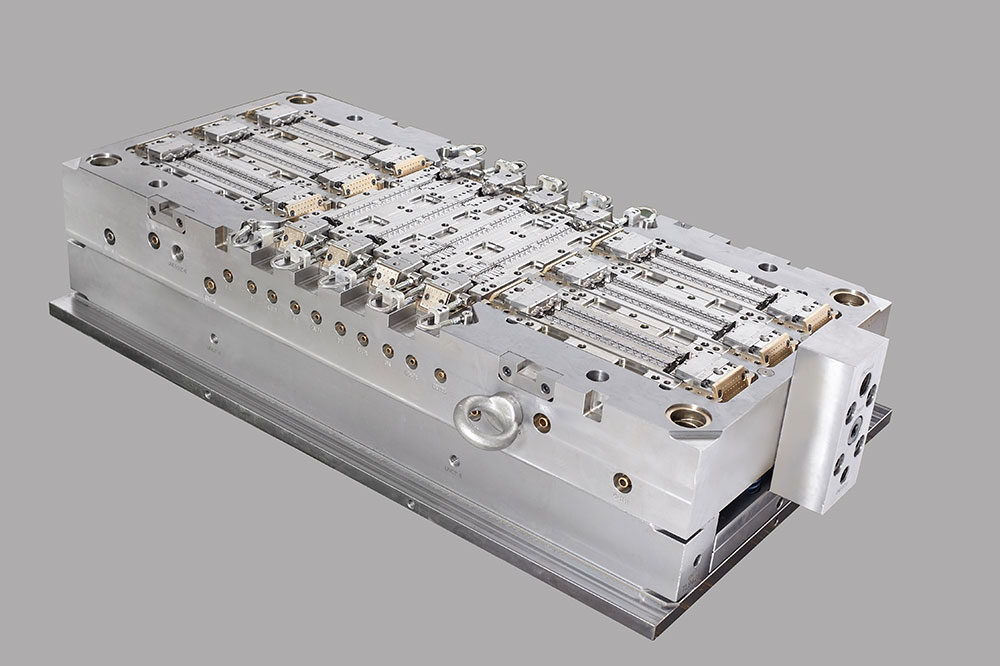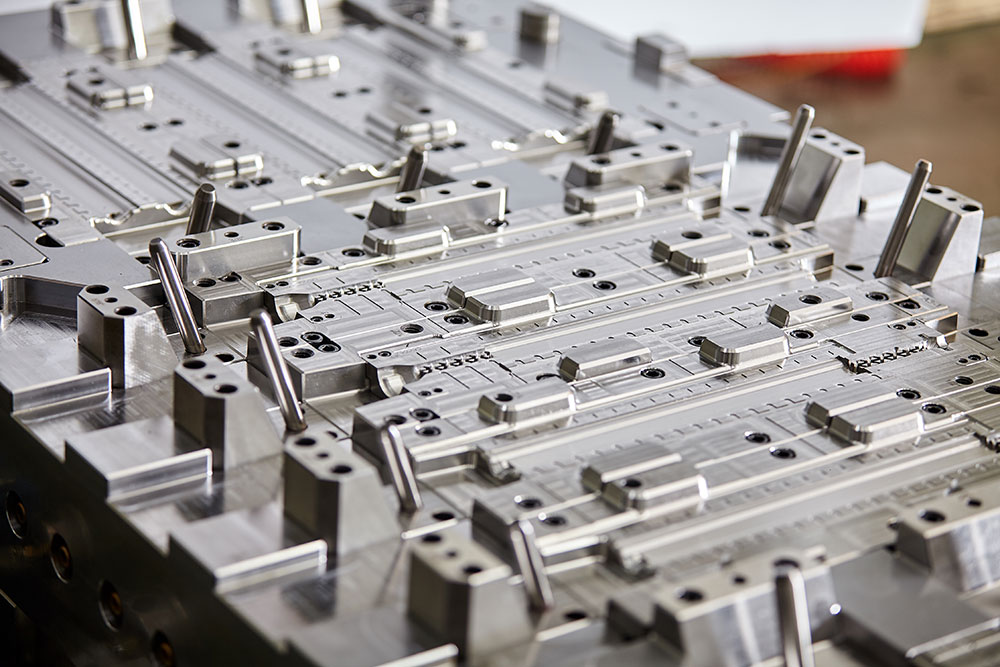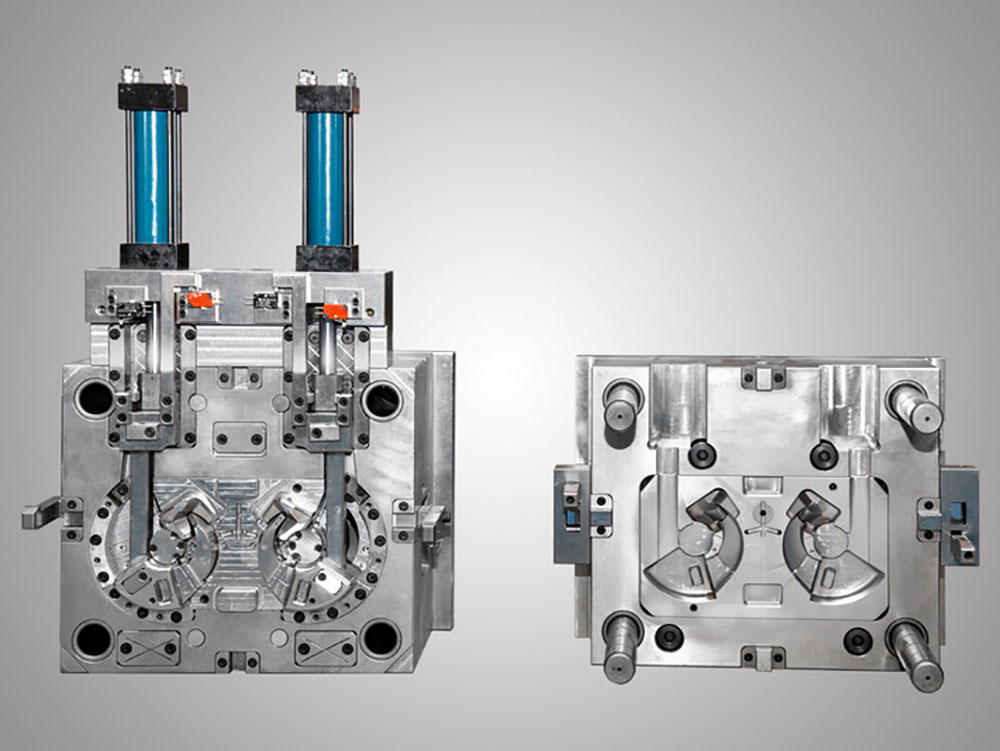Precision Mold Manufacturing for Automotive Components: A Comprehensive Guide
Introduction
The automotive industry is undergoing a significant transformation, driven by the demand for enhanced safety, performance, and aesthetics. At the heart of this evolution lies precision mold manufacturing, a critical process that ensures the production of high-quality automotive components. This article delves into the intricacies of precision mold manufacturing, highlighting its importance, applications, and the technologies that make it possible.
What Is Precision Mold Manufacturing?
Precision mold manufacturing involves the design and production of molds with exacting tolerances, enabling the creation of complex automotive parts with high accuracy. Unlike standard mold manufacturing, which may allow for minor deviations, precision mold manufacturing demands strict adherence to specifications, ensuring each component meets the desired standards.
In the automotive sector, this level of precision is paramount. Components such as engine parts, interior trims, and lighting housings require molds that can produce parts with minimal variation, ensuring consistency and reliability across production runs. The emphasis on precision not only enhances the performance of individual components but also contributes to the overall safety and efficiency of vehicles.

Key Automotive Components That Require Precision Molds
Several automotive components necessitate the use of precision molds due to their complexity and functional requirements:
-
Dashboard Panels and Trim Components: These parts demand high aesthetic quality and dimensional accuracy to ensure a seamless fit and finish.
-
Bumpers and Grille Molds: Structural integrity and precise dimensions are crucial for these components to absorb impact and maintain vehicle aerodynamics.
-
Door Panels and Interior Trims: Precision molds ensure that these parts align correctly, reducing noise and enhancing the overall driving experience.
-
Light Housing and Lens Molds: Accurate molds are essential for the proper alignment and functionality of lighting systems.
-
Engine Cover and Under-the-Hood Components: These parts must withstand high temperatures and mechanical stress, necessitating molds that can produce durable and precise components.
Technologies Involved in Precision Mold Manufacturing
The advancement of precision mold manufacturing is attributed to several cutting-edge technologies:
-
CNC Machining: Computer Numerical Control (CNC) machines enable the production of mold components with high precision and repeatability.
-
EDM and Wire-Cutting: Electrical Discharge Machining (EDM) and wire-cutting techniques allow for the creation of intricate mold features that are difficult to achieve with traditional machining.
-
CAD/CAM Software: Computer-Aided Design (CAD) and Computer-Aided Manufacturing (CAM) software facilitate the design and simulation of molds, ensuring accuracy before physical production.
-
CMM (Coordinate Measuring Machine): CMMs are used to verify the dimensional accuracy of molds, ensuring they meet the specified tolerances.
Relevant Standards:
- ISO 2768(General Tolerance Standard)
- DIN 7168(Machining Dimensional Tolerances)
- GB/T 1804(Chinese Dimensional Tolerance Standard)

Material Selection for Automotive Precision Molds
Selecting the appropriate material for mold construction is vital for performance and longevity:
-
Common Tool Steels: Materials like P20, H13, and S136 are popular choices due to their hardness, thermal conductivity, and resistance to wear.
-
Thermal Conductivity and Wear Resistance: Materials with high thermal conductivity facilitate faster cooling, while wear-resistant materials extend mold life.
-
Corrosion-Resistant Materials: In environments prone to moisture or corrosive substances, using corrosion-resistant materials ensures mold durability.
Quality Control in Automotive Mold Manufacturing
Maintaining quality in precision mold manufacturing involves several critical steps:
-
Tolerance Control: Achieving tight tolerances (e.g., ±0.01mm) ensures components fit and function as intended.
-
Mold Flow Analysis and Simulation: Simulating the molding process helps identify potential issues, allowing for adjustments before production.
-
Mold Trials and Validation: Conducting trials verifies that the mold produces parts meeting all specifications.
-
ISO/TS Certifications: Adhering to international standards demonstrates a commitment to quality and consistency.
Factors to Consider in Mold Design
Molds are designed around customer requirements, including annual production volume, part surface finish, critical dimensions, and other features. The mold design process is typically a collaborative effort between SPG and the customer’s engineering team. Typically, the first step in finalizing the mold design and selecting mold materials is to determine the critical features/qualities that must be included in the design, such as:
- Mechanical and chemical properties of the injected resin
- Special tooling may be required, such as slides and threads
- Component size, thickness, complexity, and tolerances
- Cooling of gates and vents
- Injection pressure required to fill the cavity
- Prototype requirements
- Production volume requirements
- Budget expectations
Flow studies are very effective in optimizing mold designs, especially in determining the ideal locations for gates, parting lines, and ejector locations. We offer a variety of advanced prototype tools to troubleshoot mold designs to create the best injection molding solution for your project, maximizing quality while streamlining production and reducing costs.
Challenges in Automotive Precision Molding and How to Overcome Them
Precision mold manufacturing faces several challenges:
-
Warpage and Shrinkage: Designing molds with proper cooling channels and using appropriate materials can mitigate these issues.
-
Tight Timelines: Implementing efficient project management and leveraging advanced technologies can accelerate production without compromising quality.
-
High-Volume Production Consistency: Regular maintenance and quality checks ensure consistent output across large production runs.

Advantages of Working with an Experienced Precision Mold Manufacturer
Partnering with a seasoned precision mold manufacturer offers numerous benefits:
-
Cost-Effective Tooling: Expertise in mold design and material selection can reduce long-term costs through durable and efficient molds.
-
Faster Time-to-Market: Streamlined processes and advanced technologies expedite production timelines.
-
Improved Part Performance: High-quality molds produce components with superior functionality and longevity.
-
Customization: Experienced manufacturers can tailor molds to specific requirements, accommodating both low and high-volume production needs.
Why Choose Huazhi Technology?
At Huazhi Technology, we specialize in the design and manufacture of precision injection and die-casting molds for automotive components. Our commitment to quality, innovation, and customer satisfaction sets us apart in the industry. With state-of-the-art facilities and a team of experienced professionals, we deliver molds that meet the highest standards of precision and durability.
Conclusion
Precision mold manufacturing is integral to the automotive industry’s pursuit of excellence in safety, performance, and design. By understanding the processes, technologies, and materials involved, manufacturers can make informed decisions that enhance product quality and efficiency.
Take the Next Step Toward Precision Excellence
Ready to elevate your automotive components with unparalleled precision and quality? Partner with Huazhi Technology—your trusted expert in precision mold manufacturing. Our state-of-the-art facilities and experienced team are dedicated to delivering molds that meet the highest standards of accuracy and durability.
Don’t settle for less when it comes to your manufacturing needs. Contact Huazhi Technology today to discuss your project requirements and discover how our precision mold solutions can drive your success.
Contact Us Now to Begin Your Precision Manufacturing Journey!
FAQ
Q: What materials are commonly used in precision mold manufacturing?
A: Common materials include tool steels like P20, H13, and S136, chosen for their hardness, thermal conductivity, and wear resistance.
Q: How does precision mold manufacturing benefit the automotive industry?
A: It ensures the production of high-quality, consistent components, enhancing vehicle safety, performance, and aesthetics.
Q: What technologies are involved in precision mold manufacturing?
A: Key technologies include CNC machining, EDM, CAD/CAM software, and CMM for design, production, and quality assurance.
Q: How does Huazhi Technology ensure mold quality?
A: We implement strict quality control measures, including tolerance control, mold flow analysis, and adherence to international standards.
Q: Can Huazhi Technology handle custom mold requirements?
A: Yes, we offer customized solutions tailored to specific automotive component needs, accommodating various production volumes.
Q: What is the typical lead time for mold production?
A: Lead times vary based on complexity and volume, but our efficient processes aim to deliver molds promptly without compromising quality.
Q: How does Huazhi Technology support clients post-production?
A: We provide ongoing support, including maintenance services and technical assistance, to ensure long-term mold performance.
Q: What industries does Huazhi Technology serve?
A: While specializing in automotive components, we also cater to other industries requiring precision mold manufacturing.
Q: How can I request a quote or consultation?
A: Please contact our sales team through our website or by phone to discuss your project requirements and receive a tailored quote.
Q: Does Huazhi Technology offer prototyping services?
A: Yes, we provide prototyping to help clients evaluate designs before full-scale production.
